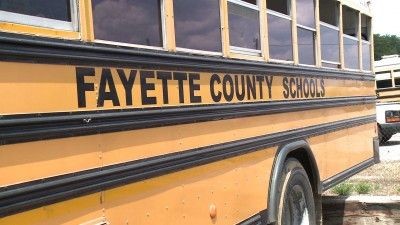With 3,474 students, the Fayette County public school system isn’t much larger than some high schools in Shelby County, but it might have some indicators for its bigger neighbor when it comes to desegregation.
On Tuesday, the U.S. District Court in Memphis approved a settlement of a 47-year-old case that U.S. Attorney Ed Stanton called “a significant landmark in this desegregation case.” The NAACP Legal Defense & Education Fund and the Fayette County Board of Education also signed off on it.
What relevance might it have for Memphis and Shelby County, which have a combined enrollment of about 150,000 students? Stanton said in a prepared statement that the settlement will ensure that students “are educated in a manner consistent with the Fourteenth Amendment of the U.S. Constitution,” which is also at issue in the upcoming case of the Unified Shelby County Schools and the municipal school systems that voters approved earlier this month. The trial is scheduled to begin in November.
School resegregation was also an issue in the Shelby County Schools in a federal court order by then U.S. District Judge Bernice Donald in 2007. Her proposed remedy involving a special master and a realignment of school boundaries and attendance zones to create schools with a racial mix within 15 percent of the black and white percentages in the county system was overturned on appeal.
The ten Fayette County schools are each more integrated than the Memphis City Schools, which are over 90 percent minority and 87 percent black. The highest white percentage for a Fayette County school is 65 percent. The highest black percentage is 80 percent. Southwind High School, a Shelby County school, was nearly all black the day it opened because of the way the boundaries were drawn. The Shelby County school system at the time was about 37 percent black. Donald is now a federal appeals court judge.
The consent order for Fayette County requires the district to implement a “controlled choice program” by the start of the 2014-2015 school year. Here’s how:
BUILD NEW SCHOOLS: And close two existing elementary schools.
CREATE A CONTROLLED CHOICE REGION: And use a random selection system to assign students to schools based on their ranked preferences, provided that racial diversity is achieved in each school. The term “student racial diversity” means within 15 percentage points of the racial balance in the district as a whole.
ENCOURAGE MAJORITY TO MINORITY TRANSFERS: Black kids can transfer to white schools and vice versa.
FEDERAL MAGNET SCHOOLS ASSISTANCE PROGRAM: If the number of applicants exceeds the number of spaces, there is a random lottery selection process.
FREE TRANSPORTATION TO NON-ZONE STUDENTS: So long as this does not “negatively effect” the students’ willingness to apply to the magnet school.
EMPLOYEE RACIAL DIVERSITY WITHIN 20 PERCENTAGE POINTS.
NEW SCHOOLS CANNOT CAUSE ANY EXISTING SCHOOLS TO FAIL TO ACHIEVE RACIAL DIVERSITY STANDARDS.
The largest private schools in Fayette County are Rossville Christian Academy and Fayette Academy in Somerville. What the consent order cannot control, of course, is the impact of those schools and smaller private schools in Fayette County as well as future changes in the school system(s) of Shelby County.
“They are making more demands of Fayette County than they ever made of Shelby County,” said Louise Mercuro, former deputy director of the Memphis and Shelby County Office of Planning and Development. “I don’t get that at all. God knows how many students will be going from Shelby County schools to Fayette County schools.”
